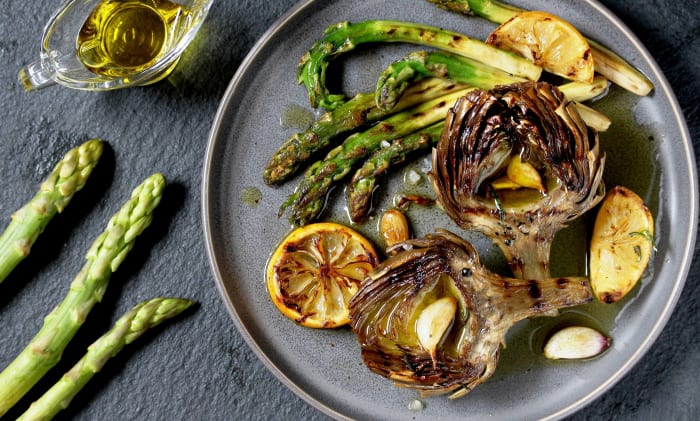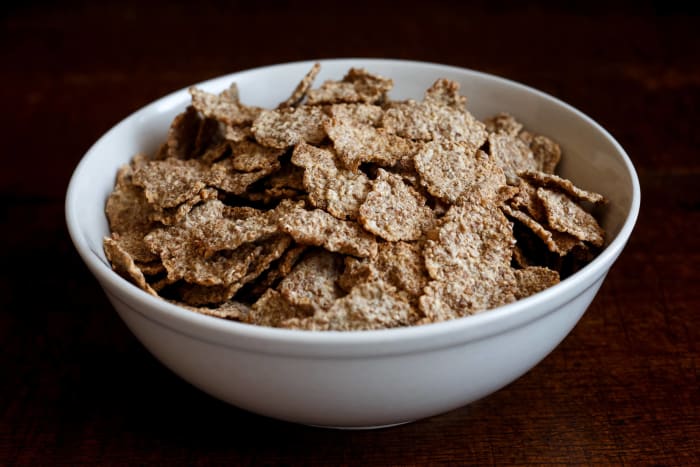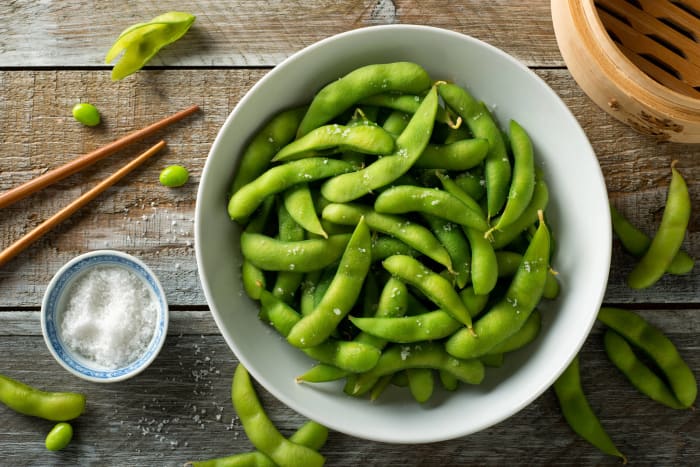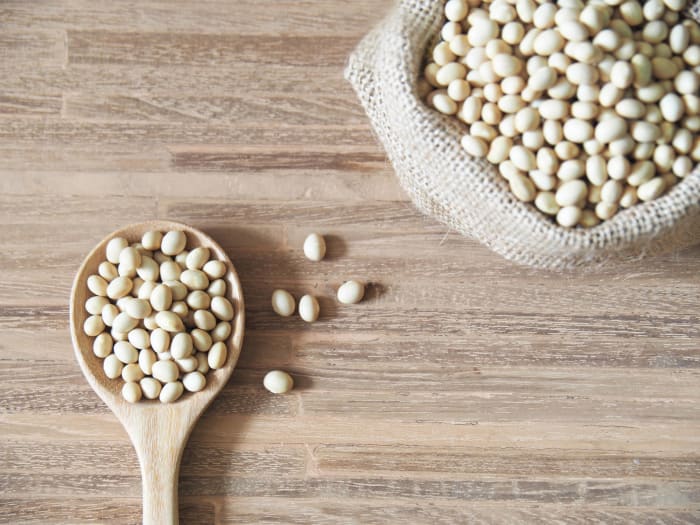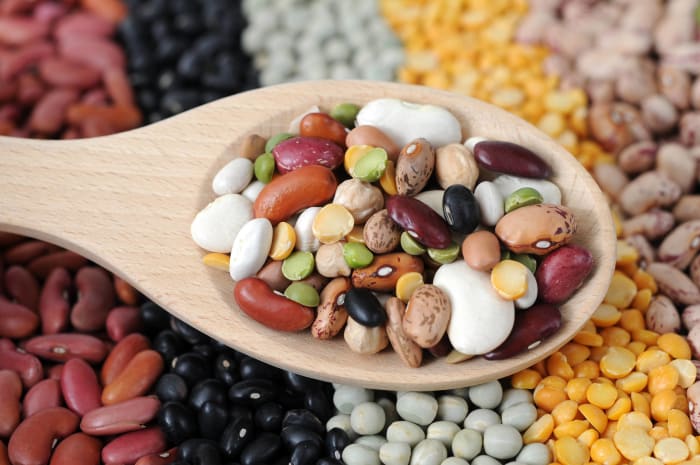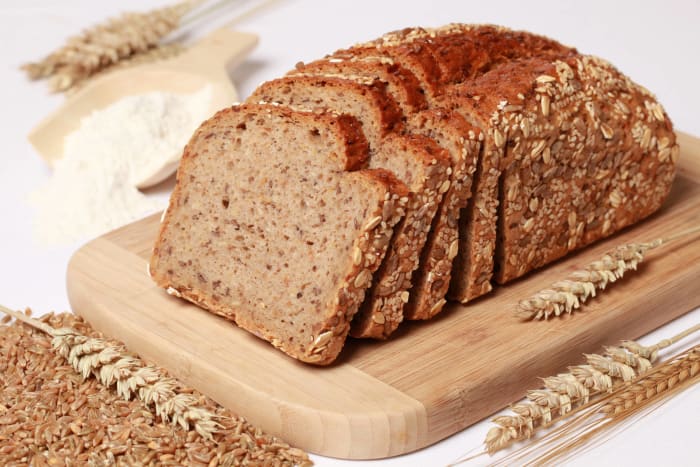Eating fiber isn’t just about staying regular in terms of digestion, it also helps lower cholesterol, control blood sugar, and prevent all kinds of diseases. Women should consume 21-25 grams daily, according to the Mayo Clinic, while men need 30-38 grams. Most fruit (including bananas, oranges, and berries) provides a decent amount of fiber, as do many veggies, breads, and nuts— but only a select few can be considered top-tier in terms of fiber. Here are the 22 best sources.
Krasula / Shutterstock.com
Most nuts provide at least 1 or 2 grams of fiber, but almonds are the clear winner. A one-ounce serving of almonds has 3.5 grams of fiber, as well as iron, calcium, and potassium.
Jiang Zhongyan / Shutterstock.com
We love apples in pies and crisps, cut up for fruit salad or oatmeal, or just eaten whole. And why not have the whole thing, as a single medium apple contains 4.5 grams of fiber.
Lyudmila Mikhailovskaya / Shutterstock.com
Here’s a sneaky entrant: artichokes! One medium artichoke—or a half-cup serving—contains about 7 grams of fiber. Other surprise benefits of an artichoke include the 4 grams of protein they contain, as well as the 25% daily value of vitamin C and 19% daily value of magnesium.
Larisa Blinova / Shutterstock.com
Get ready for some guac, because avocado is an awesome source of fiber if you’re into that. (And based on the fact that you’re reading this article, you probably are.) A one-cup serving of avocado—a bit less than a whole fruit—provides 10 grams of fiber, 3 grams of protein, and 24% of your daily value of vitamin C.
Thanthima Lim / Shutterstock.com
A cup of cooked barley contains more than 6 grams of fiber, at a cost of only about 200 calories. Barley is also a good source of magnesium, iron, and vitamin B6.
Natali_ploskaya / Shutterstock.com
“Nature’s candy” is obviously much healthier than the moniker suggests. In addition to numerous antioxidants, beets are a good source of potassium, vitamin C, magnesium, iron, and vitamin B6. They’re also an excellent source of fiber, delivering nearly 4 grams per one-cup serving.
Moving Moment / Shutterstock.com
Bran is the hard outer layer of cereal grain, so a bran flake breakfast cereal is one of the best ways to consume it. On average, a cup of bran cereal contains 5.5 grams of fiber—and adding almond or soy milk will provide an extra gram or two!
Plateresca / Shutterstock.com
You’ve probably heard it your whole life: broccoli is good for you. It’s low in calories, it’s high in vitamins C and A, and it also features potassium, magnesium, protein, calcium, and iron. On top of all that, a cup of chopped broccoli also contains 5 grams of fiber!
DONOT6_STUDIO / Shutterstock.com
White rice isn’t as bad as some people make it out to be, but brown rice is still the healthier option. Most notably, brown rice is high in both magnesium and fiber, with the latter totaling 3.5 grams per cup.
Shutterstock
Chia seeds are a significant source of fiber for a small serving size. Just 1 oz of chia seeds (about 2 tbsp), contains 10 grams of fiber, as well as 23% of your daily value of magnesium and 17% of your calcium.
Foodio / Shutterstock.com
One of the absolute best sources of fiber is edamame, which are immature soybeans. A single cup of edamame serves up a whopping 9 grams of fiber, not to mention about 12 grams of protein, 78% of your daily value of folate, and may even help prevent certain types of cancer.
Nagy Julia / Shuttertstock.com
They’re not as full of fiber as chia seeds, but flax seeds still hold their own: A 2-tbsp serving serves up 5.6 grams of fiber. You can easily mix a tbsp or two into your cereal, oatmeal, or yogurt, or bake it into cookies, muffins, and other goodies.
ThiSa / Shutterstock.com
Navy beans—also known as Boston beans, haricot beans, or white beans—are the most fiber-packed of all legumes. A half-cup serving contains a whopping 10 grams of fiber (not to mention 7 grams of protein) so add them to your next soup or chili!
Alena Haurylik / Shutterstock.com
We have oatmeal for breakfast a few days a week for protein power and carb fuel, but it’s also a significant source of fiber. One cup of uncooked oats packs 10 grams, and it’s a solid supplier of selenium, magnesium, phosphorus, and zinc. And with oatmeal, there are also plenty of opportunities for fiber-rich toppings!
AN NGUYEN / Shutterstock.com
No bean can hold a candle to the aforementioned navy beans, but the others still come with plenty of fiber per half-cup serving. This includes black beans (7.5 grams), pinto beans (7.5 grams), red beans (7 grams), Lima beans (6.5 grams), Great Northern beans (6 grams), garbanzo beans (6 grams), cannellini beans (5.5 grams), and kidney beans (5.5 grams).
Dalaifood / Shutterstock.com
Quinoa has received attention as something of a superfood in recent years for its numerous health benefits. A one-cup serving provides more than 5 grams of fiber and 8 grams of protein, as well as iron, magnesium, folate, and all nine essential amino acids.
Kasabutskaya Nataliya / Shutterstock.com
Thinking about adding pears to your next grocery list? If you’re looking to add some fiber to your diet, pears are an excellent source. A single medium pear contains 6 grams of fiber—24% of your daily value!
SherSor / Shutterstock.com
Despite both being small, round, and green vegetables, green peas and edamame are botanically completely different foods. Their nutrition is somewhat similar though, as green peas have 8 grams of fiber per cup, and split peas have twice as much!
virtu studio / Shutterstock.com
Go ahead and pop a bowl of popcorn for your next movie night or TV binge session. Not only is popcorn low in calories, but it’s also high in fiber. A generous four-cup serving clocks in at 7 grams of fiber.
Sea Wave / Shutterstock.com
Potatoes have gotten a bad rap over the years, but that’s mostly due to the fried varieties. Potatoes actually have numerous health benefits, including about 5 grams of protein in a medium-sized potato, or 7 grams in a large one!
New Africa / Shutterstock.com
Among your common supermarket fruit, raspberries are the best source of fiber. A cup contains 8 grams of fiber, as well as half your daily value of vitamin C, and, surprisingly, some omega-3 fatty acids.
22 of 22
Whole wheat bread
Markus Mainka / Shutterstock.com
Your average slice of whole wheat bread contains about 2 or 3 grams of fiber, meaning your average sandwich serves up about 5 or 6 grams in total—not including whatever is in between the bread. Nowadays, you can even find numerous varieties of high-fiber bread, some with 5 or 6 grams per slice!
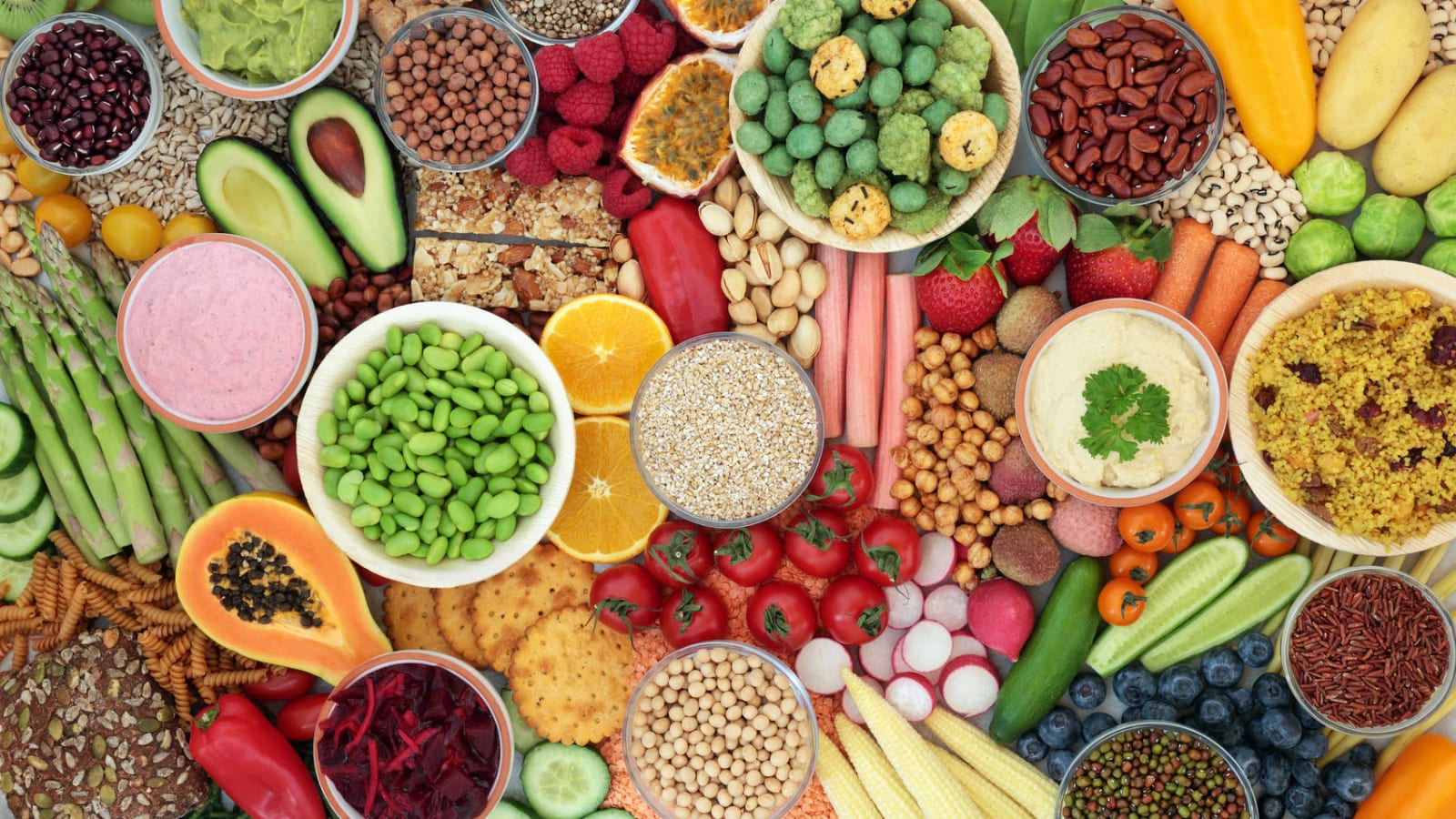
 +
+


